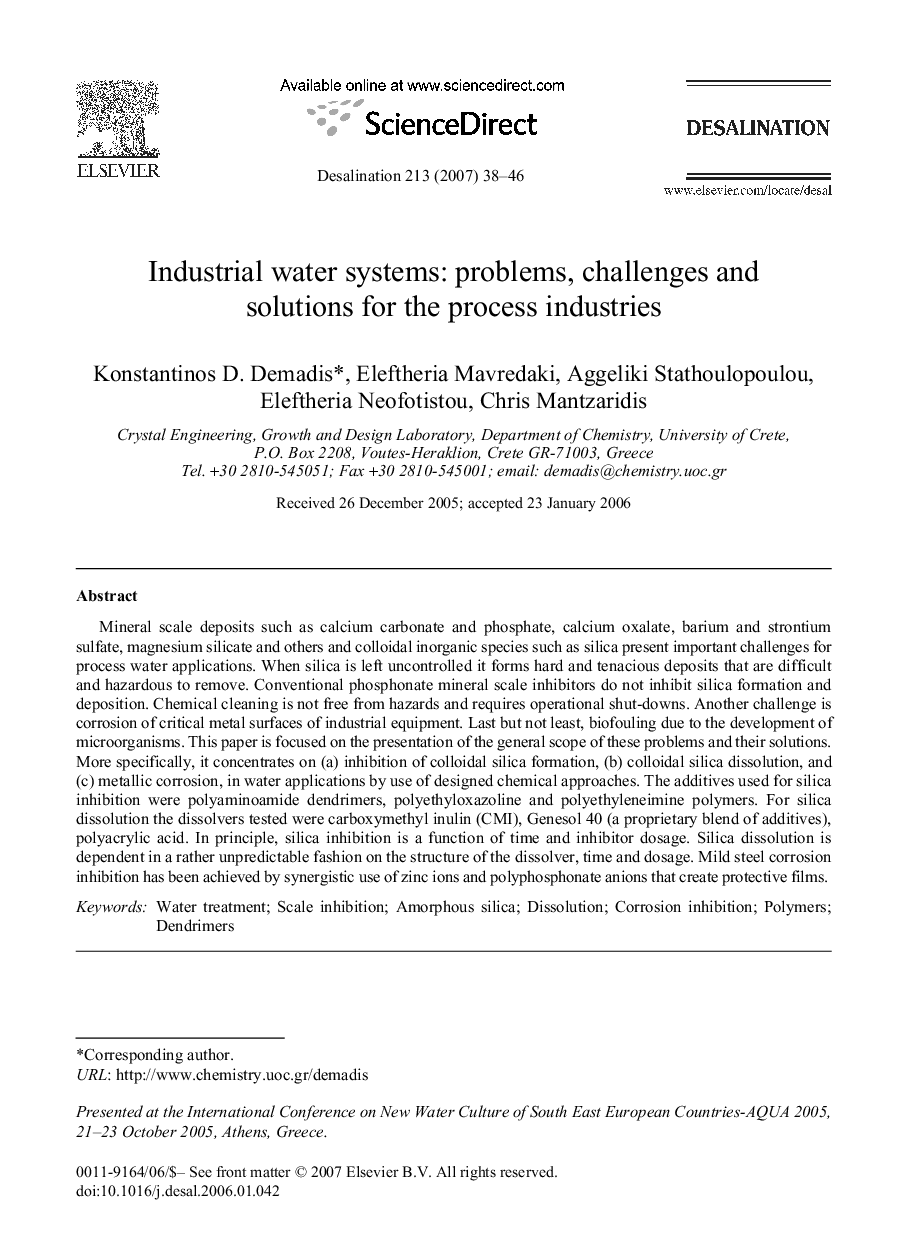| Article ID | Journal | Published Year | Pages | File Type |
|---|---|---|---|---|
| 628083 | Desalination | 2007 | 9 Pages |
Mineral scale deposits such as calcium carbonate and phosphate, calcium oxalate, barium and strontium sulfate, magnesium silicate and others and colloidal inorganic species such as silica present important challenges for process water applications. When silica is left uncontrolled it forms hard and tenacious deposits that are difficult and hazardous to remove. Conventional phosphonate mineral scale inhibitors do not inhibit silica formation and deposition. Chemical cleaning is not free from hazards and requires operational shut-downs. Another challenge is corrosion of critical metal surfaces of industrial equipment. Last but not least, biofouling due to the development of microorganisms. This paper is focused on the presentation of the general scope of these problems and their solutions. More specifically, it concentrates on (a) inhibition of colloidal silica formation, (b) colloidal silica dissolution, and (c) metallic corrosion, in water applications by use of designed chemical approaches. The additives used for silica inhibition were polyaminoamide dendrimers, polyethyloxazoline and polyethyleneimine polymers. For silica dissolution the dissolvers tested were carboxymethyl inulin (CMI), Genesol 40 (a proprietary blend of additives), polyacrylic acid. In principle, silica inhibition is a function of time and inhibitor dosage. Silica dissolution is dependent in a rather unpredictable fashion on the structure of the dissolver, time and dosage. Mild steel corrosion inhibition has been achieved by synergistic use of zinc ions and polyphosphonate anions that create protective films.
